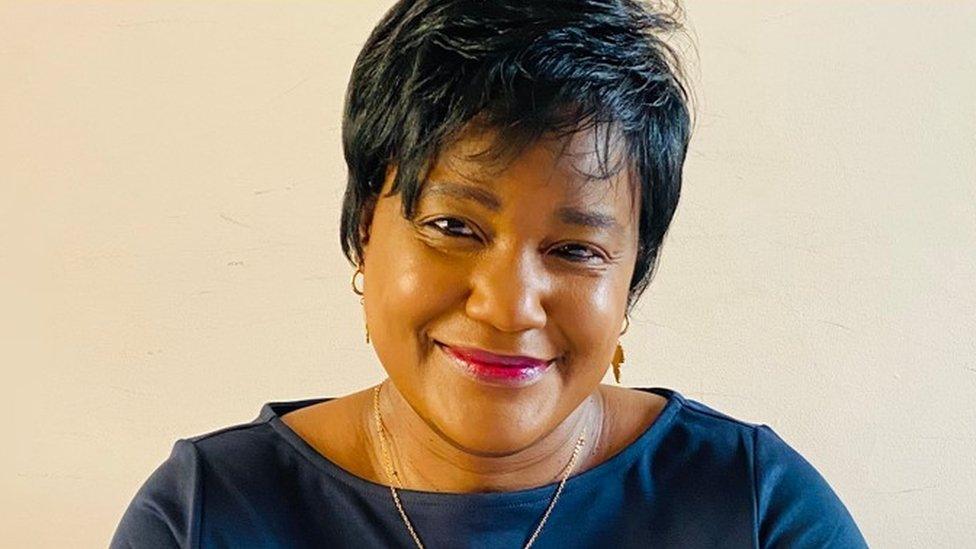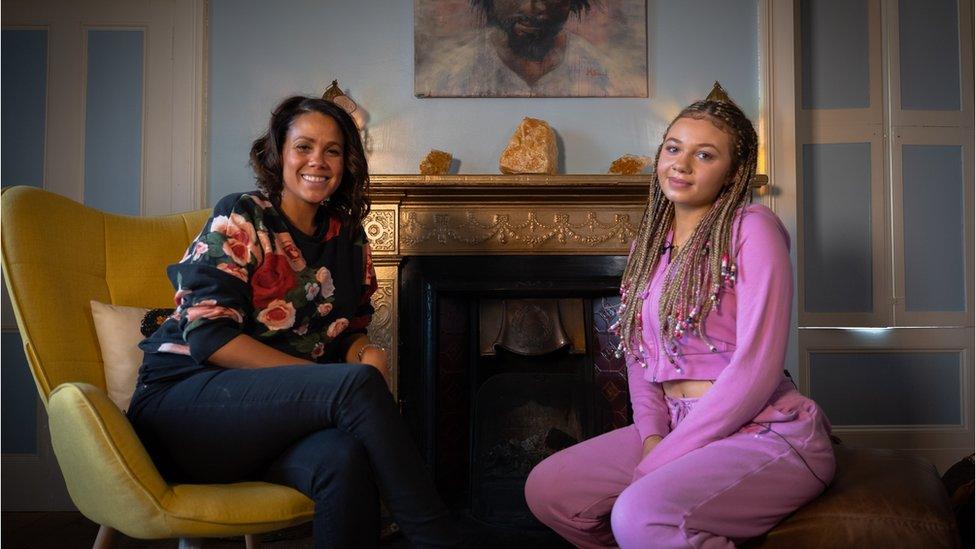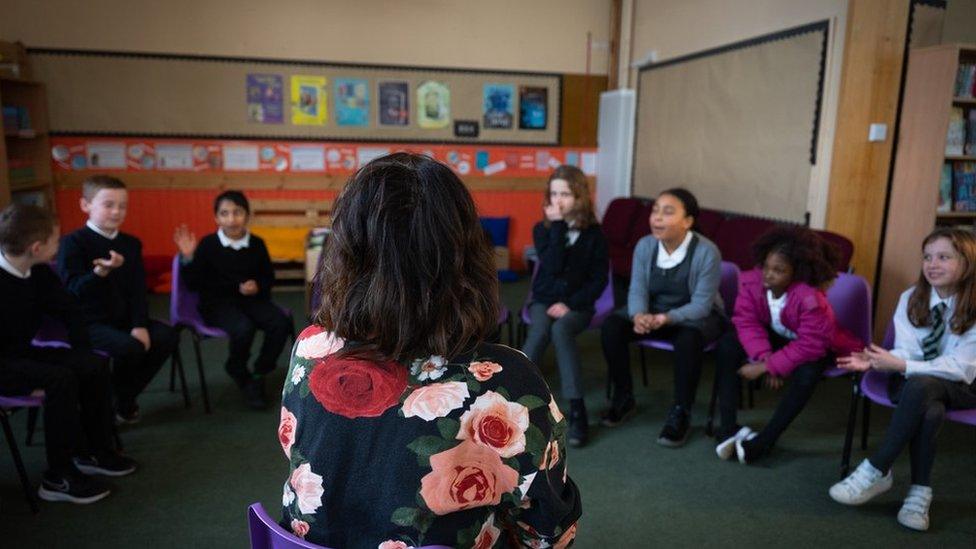What is the reality of racism in Scotland?
- Published
Racism in Scotland: 'You're not alone, you have a voice'
When I was first asked to front a documentary about racism in Scotland, I said no.
I knew it would stir up all kinds of emotions and force me to not only face my past but confront the present day reality for people who look like me.
But in the end I agreed, as I realised I could give a voice to stories that desperately needed to be shared.
Like many others, I had bought into the rhetoric that Scotland is opening, welcoming, diverse and inclusive.
As Rabbie Burns wrote, we're all Jock Tamson's Bairns... right?
But it appears not if you are a black or brown person living in Scotland today.
I had a happy childhood in my home town of Port Glasgow.
I suffered little racism and felt protected and loved growing up in a working-class community where folk looked out for each other.

Debora Kayembe is the rector of Edinburgh University
Returning to The Port, I felt an overwhelming sense of pride for the good people who laid the foundations for what I have become.
But then I spoke to Debora Kayembe, the rector of Edinburgh University, who has experienced vicious acts of racism.
Like my mum, she is a black African woman. They share the same African/Scottish twang; she is strong, gregarious and doesn't suffer fools.
My mother also moved to Scotland from Africa, but the similarities end there.
In my street we had neighbours who would ask us to look after their kids. We'd live in each other's houses and my mum, affectionately known as Mamma, was a mother to everyone.
Used sanitary products
Debora, who came to Scotland as a refugee 10 years ago, has experienced mobs outside her home telling her to go back where she came from. She has had used sanitary products posted through her letterbox and nails put in her tyres numerous times.
Then I spoke to father and son grocery shop owners Pete and Anand.
I was interested to explore the generational gap and expected to hear that there had been an improvement in societal attitudes and behaviour since the 1980s and 90s.
But they told me that nothing much had changed. Father and son have gone through the same name-calling and abuse, facing discrimination, racist slurs and threats on a regular basis.

Jean spoke to Tola Ogunyemi about her experiences
Tola Ogunyemi, a 17-year-old girl from Moray, decided to be home-schooled due to racist bullying.
Her story immediately resonated with me. When I was 17 a stranger came in to my workplace, spat in my face and racially abused me.
I felt like I was talking to a younger version of myself as I listened to Tola's trauma.
I felt angry and infuriated at the overt racism she's suffered and the complete lack of support from the authorities, teachers, fellow pupils and community.
She has been let down by the "diverse and open" Scotland in which she lives.
I approached this project from a place of privilege in terms of my lifestyle, job, profile and circumstances.
I now realise those things have shielded me from what's really going on around me and the reality for some people who look just like me.

Pupils at Glebelands Primary in Dundee
I've had my eyes opened. If I compare the present day to my upbringing in the 80s and 90s, it really feels to me like things are getting worse.
Nasar Meer, professor of Race Identity and Citizenship at Edinburgh University, told me that about a third of black and ethnic minorities in Scotland say they routinely experience racial discrimination.
However, the kids of Glebelands Primary in Dundee give me hope for the future.
The school has launched a project called Don't Recycle Racism which educates children on how to deal with racism if they are victims of it or see other people subjected to it.
The pupils themselves have designed stickers that will be placed on bins in all primary classrooms, giving advice on what they should do.
Knowing that there are now schools and people in Scotland actively trying to encourage cohesion and eliminate racism does give me some hope that my own kid and his generation will grow up in a more inclusive world.
The Truth About Scotland and Racism will be broadcast on BBC One Scotland at 20:00 on Monday.
Jean Johansson is a TV presenter best known for A Place In The Sun for Channel 4, and The One Show and Animal Park on BBC One.